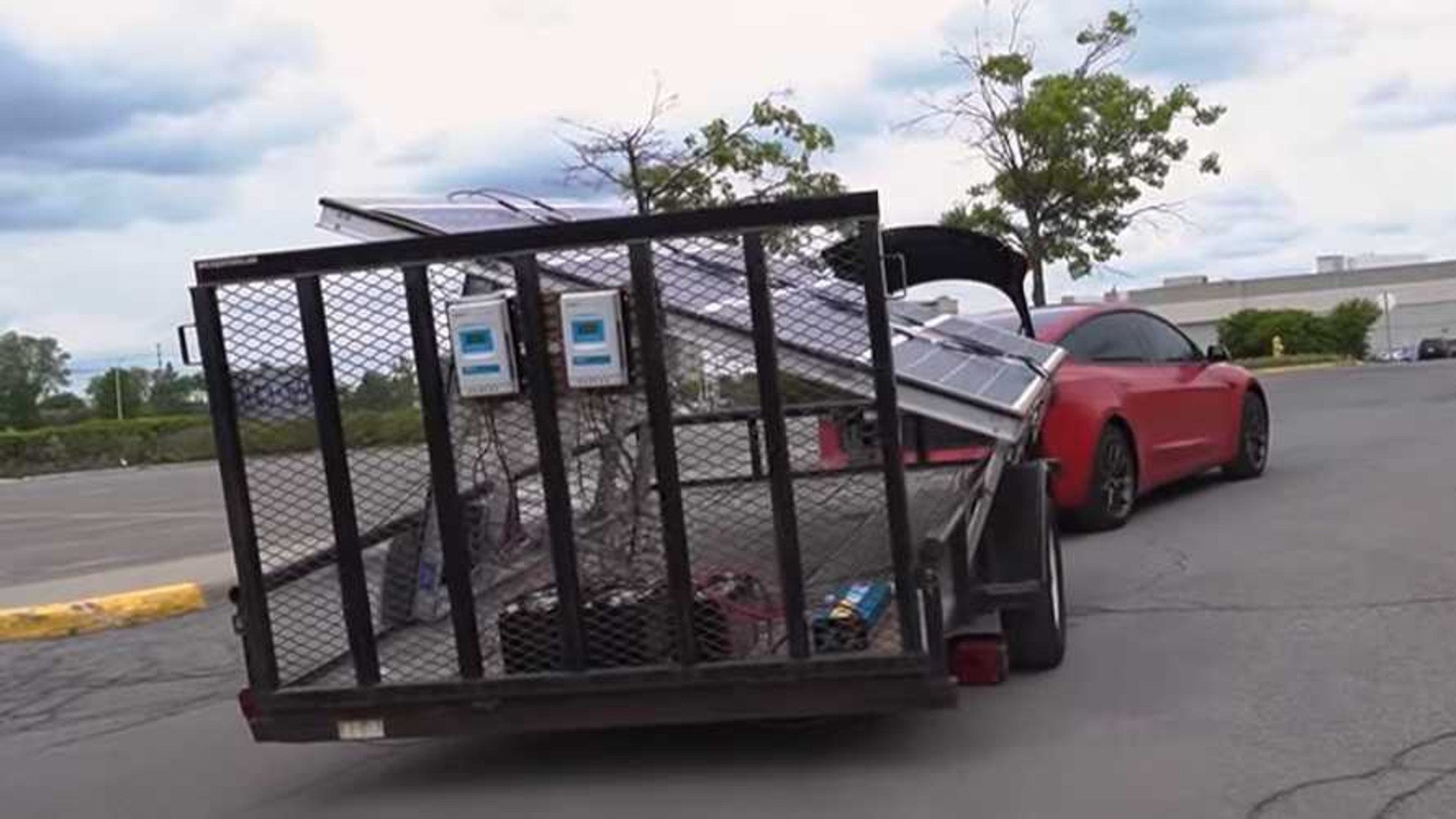

We may earn revenue from the products available on this page and participate in affiliate programs. Learn more ›
What you carry on or in your trailer is between you, the talking angels and/or devils sitting on your shoulders, and your bank account, but how that cargo is carried is relevant to every other person on the road. When a trailer is not properly maintained, it presents a danger to the driver, any passengers, and all the motorists in the surrounding area.
That’s why it is critical to stick to a regular trailer service schedule, just like you do with your cars. Although a trailer lacks a complicated powertrain that requires constant monitoring, it still demands work from its owner. A trailer should be looked over every time it is used, and there are several pieces and parts that need attention on a frequent or semi-frequent basis.

The easiest way to keep all of your service and inspection demands in order is with a checklist, so The Guides & Gear editors put together a reference guide to help you out. Check it out below.
Trailer Maintenance You Need To Know
Use these tips to keep your trailer in good condition and rolling down the road with ease.
Coupling
Typical Average Service Frequency: Inspect every trip
Make sure the coupling itself is in good, clean condition and has no up-and-down or left-to-right slack. Make sure the latch stays in place when in use and that it stays locked with cotter pins. Don’t forget to attach the chains to the secondary couplings, either.
Tires
Typical Average Service Frequency: Air before every trip, replace when the tread is worn or sidewalls are cracked
Check the air pressure in your tires before every trip and fill when necessary. While you’re at lug nut eye level, run a gloved hand over the tires to check for damage, punctures, or items stuck in the tire. If you use the trailer frequently, use a quarter or tread gauge to check the tread, as well. If your trips are more spread out and you put fewer miles on your trailer, you can inspect the tread less often. Make sure the valve stems are in good condition, as well.
Rotate Tires: Rotate your tires each time you pull it out of storage for the new season.

Wheels
Typical Average Service Frequency: When damaged
During your tire inspections, you should also check out the condition of the wheel. Look for rust spots, damage, or general wear that could be detrimental to the wheel’s purpose.
Wheel Bearings
Typical Average Service Frequency: Once a year
This might vary depending on how frequently you use your trailer, but eTrailer suggests repacking the wheel bearings and checking their condition at least once a year.
Brakes
Typical Average Service Frequency: Inspect every trip, service once a year
Whether they are hydraulic or electric, the brakes need to be inspected regularly and serviced at least once or twice a year, depending on the trailer usage rate. Check for corrosion, wear, stuck parts, and overall functionality. Additionally, make sure the brake fluid is always up to the correct level and replace it at least once or twice a year.
Surge Brake Actuator and Solenoid
Typical Average Service Frequency: Inspect every trip, service once or twice a year
The surge brake actuator and solenoid are crucial to the safety of your trip. Inspect both every single time before you set out onto the road, and make sure any grease fittings are properly greased.
Suspension
Typical Average Service Frequency: Inspect every trip
A large majority of trailers will use a leaf spring suspension, though some might have torsion axle setups or even axleless suspensions. No matter the type, they are all subjected to everything underneath the trailer, including salt, road grime, dirt, gravel, and tar. Inspect the metal, rubber, bolts, and everything else to look for rust, degradation, or any other damage.
Pro tip: It’s not exactly “service,” but if you’re taking your trailer camping or using it to launch watercraft, it’s a good idea to spray the trailer down after each use and before putting it away. This will help remove salt and dirt that could damage trailer parts.

Lights
Typical Average Service Frequency: In pairs, when they die
Trailer lights require just as much attention, if not more, than the mechanical parts of a trailer. Always check your lights before every trip, and when one dies, replace the pair.
Metal/Wood Condition
Typical Average Service Frequency: Never, if properly cared for
Part of your visual inspection will include looking over the metal or wood that makes up the walls of your trailer if it has them. Look for deteriorating materials, soft spots, rust, or other wear and tear that could degrade the functionality of the trailer.
Breakaway System
Typical Average Service Frequency: Every trip
Breakaway systems are designed to stop your trailer in the event that it “breaks away” from the towing vehicle. It typically does this by using a small battery, electric brakes, and a circuit with a switch. When a key is removed from that switch, it closes the circuit that connects the battery to the electric brakes and activates the trailer’s brakes.
- Switch and Key: Make sure the switch activates and the key stays in place
- Wiring: Check for disconnections or frayed wiring
- Battery: Check the charge level
- Clasp: Check the condition of the clasp and make sure it’s functional
Trailer Spare Tire
Typical Average Service Frequency: Inspect after periods of time without using a trailer
Spare tires are already sad because they’re spares, don’t completely neglect them. Show them the love they need by checking the air pressure and making sure nothing is dry rotting.
Safety Chains
Typical Average Service Frequency: When broken
Always inspect the integrity of your safety chains before every trip. Look for rust, cracks, warping, and or bent metal that could cause problems.

FAQs About Trailer Maintenance
You’ve got questions, The Drive has answers!
Q: How often should a trailer be inspected?
A: As a general rule, it’s a good idea to inspect a trailer each day that you are using it. Not everything needs to be serviced, but quick inspections don’t take much time and could help prevent any issues while driving.
Q: How often should trailer wheel bearings be replaced?
A: If you frequently use your trailer, it’s a good idea to repack the bearings once a year.
Q: How often should you grease trailer wheel bearings?
A: This depends on how often you drive the trailer, but a good general rule is once a year, or about every 10,000-12,000 miles.
Q: Can you over-grease a trailer wheel bearing?
A: It’s doubtful you will over-grease your bearings to the point that it creates problems. However, the main downside of over-greasing would be that it might come out and get grease all over your wheels, brakes, and trailer.
Q: What kind of grease do you use for trailer wheel bearings?
A: You can find products that are literally labeled wheel-bearing grease for various specific purposes and types of trailers.
Q: How often should I grease my trailer axles?
A: Inspect your axles to make sure they are properly greased before every trip.
There are dozens of different types of trailers, but most of them are used to haul something. Below, a presenter goes over the checks and balances of inspecting a horse carrier.

Let’s Talk: Comment Below To Talk With The Guides & Gear Editors!
We’re here to be expert guides in everything How To related. Use us, compliment us, yell at us. Comment below, and let’s talk! You can also shout at us on Twitter or Instagram, here are our profiles. Got a question? Got a pro tip? Send us a note: guidesandgear@thedrive.com.
